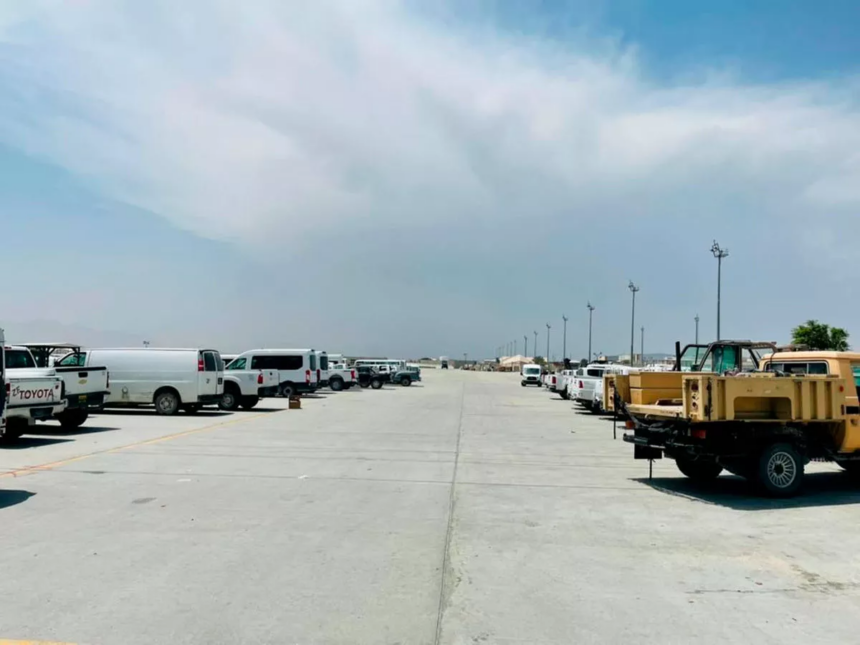RASC News Agency:The Bagram Airbase, located in Afghanistan’s Parwan province, has once again returned to international headlines amid rising geopolitical tensions. Former U.S. President Donald Trump, during a National Day of Prayer address, claimed that China has “taken over” the former American stronghold. Both the Chinese government and the Taliban regime have categorically denied the allegation. Yet, the resurfacing of Bagram as a subject of global interest reveals more than mere rhetoric it underscores the enduring geopolitical significance of this military installation. Situated roughly 60 kilometers north of Kabul, Bagram has long played a central role in the military calculus of regional and international powers. Its strategic location enables rapid access to Afghanistan’s core provinces, offering immense leverage for any actor seeking influence across the region. Far more than a relic of past conflicts, Bagram remains a key geopolitical asset in the evolving architecture of global power projection.
Originally constructed in the 1950s by the Soviet Union, Bagram rose to prominence during the Soviet invasion of Afghanistan in the 1980s. It served as a major operational hub for Soviet forces, playing a central role in their military campaign. Decades later, in the aftermath of the 9/11 attacks, the United States reestablished and significantly expanded the base, transforming it into a symbol of America’s two-decade-long military footprint in the country. For the U.S., Bagram was not merely a military base it was a command center for regional counterterrorism efforts and a symbol of superpower dominance in the heart of Asia. Over the past seven decades, Bagram has transitioned from a local airstrip to a nexus of great-power rivalry. First it was the Soviet Union, then the United States. Today, as Washington exits and Beijing ascends, questions arise over whether China will become the next power to seek influence over the facility either militarily or economically. The possibility that Bagram could serve as a staging ground for China’s strategic interests, particularly under the framework of the Belt and Road Initiative, is now a subject of speculation among global analysts.
In his remarks, Trump accused China of “occupying” Bagram and framed this as a direct threat to U.S. national security, given the base’s proximity to Chinese military assets. However, his statement appears to lack evidentiary backing. In the current political climate, where U.S.–China tensions continue to escalate, Trump’s allegation may be seen more as a strategic narrative intended to criticize the Biden administration’s withdrawal from Afghanistan and amplify American anxieties about China’s expanding global role.
In swift response, the Taliban Afghanistan’s current rulers dismissed Trump’s claim, stating unequivocally that no foreign military or intelligence presence exists at Bagram. Similarly, China’s Ministry of Foreign Affairs labeled the reports “baseless.” Independent investigations have yet to uncover any verifiable evidence suggesting the presence of Chinese forces or equipment at the airbase.
While the claims of Chinese military occupation remain unproven, Bagram’s strategic importance is undiminished. The Taliban, desperate for international recognition and economic investment, may seek to use Bagram as a bargaining chip to attract foreign partnerships. Analysts suggest that while Beijing may currently refrain from overt military involvement, China could engage through economic infrastructure projects particularly those aligned with its geopolitical ambitions under the Belt and Road Initiative.
Trump’s unsubstantiated claim has reignited debate over the future of Bagram and its potential role in the shifting balance of global power. While there is no clear evidence of a Chinese takeover, the base remains a potent symbol of geopolitical influence. In a region where power vacuums are swiftly filled and alliances are transactional, Bagram may yet serve as a crucial arena in the next phase of great-power competition. One thing is clear: Bagram’s story is far from over.






